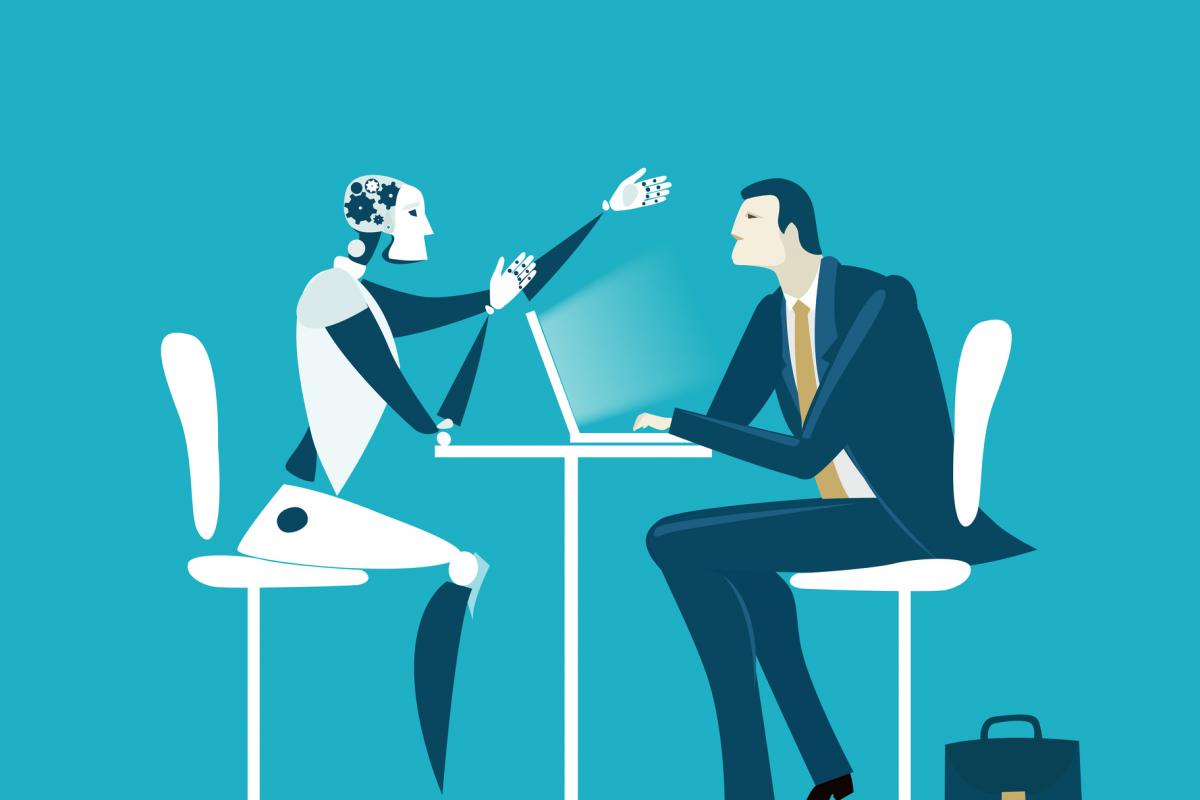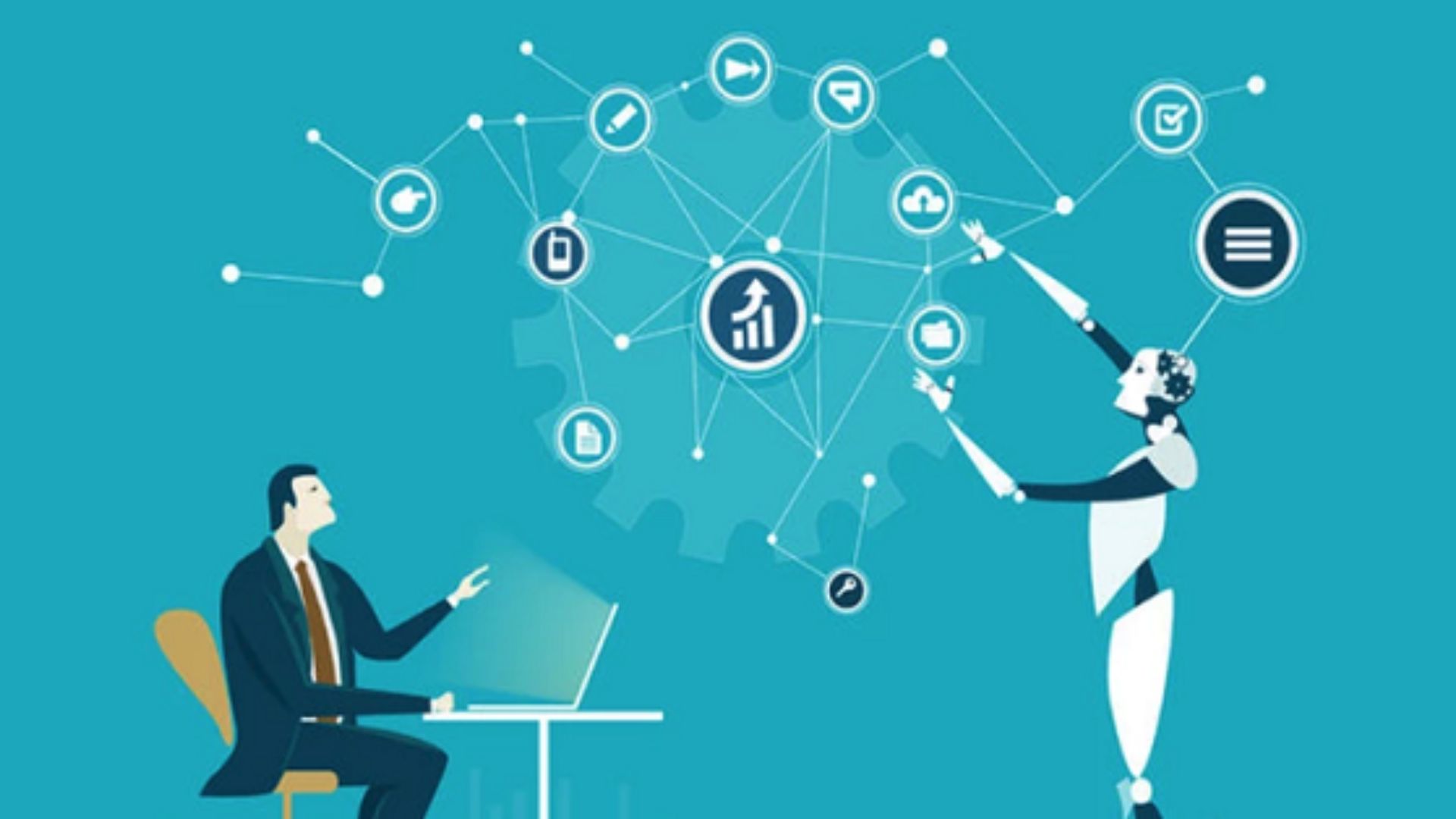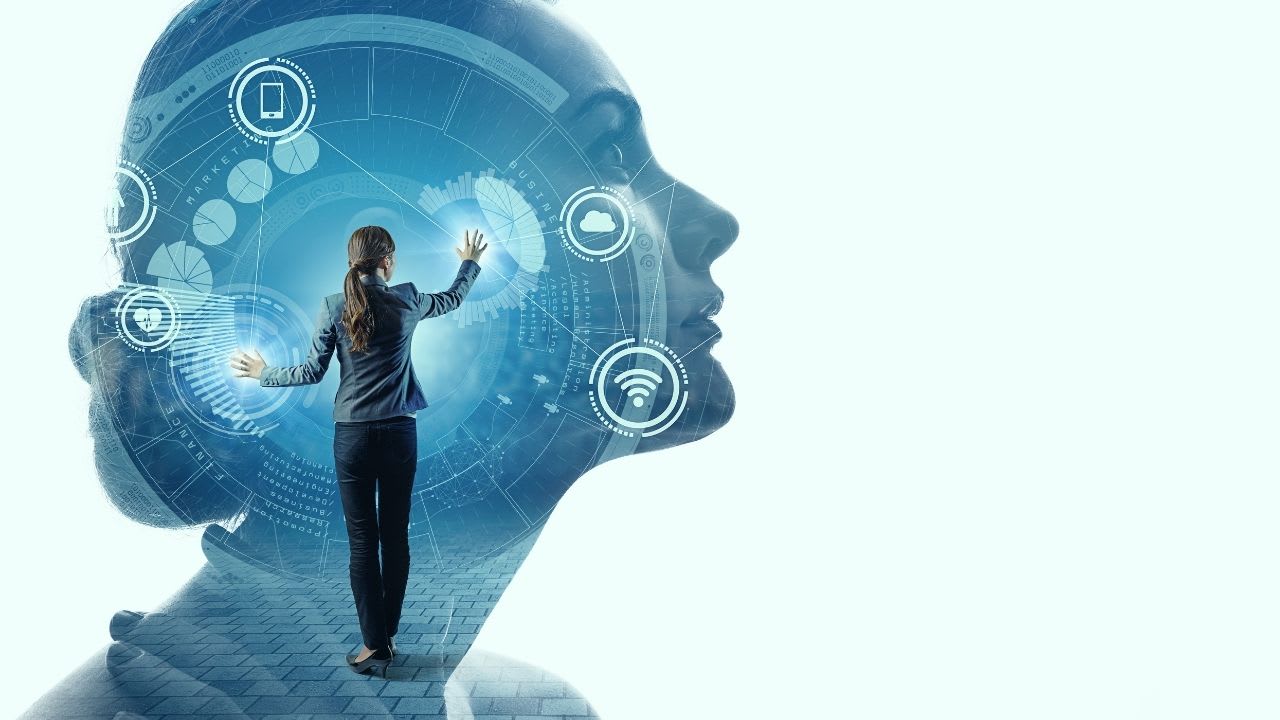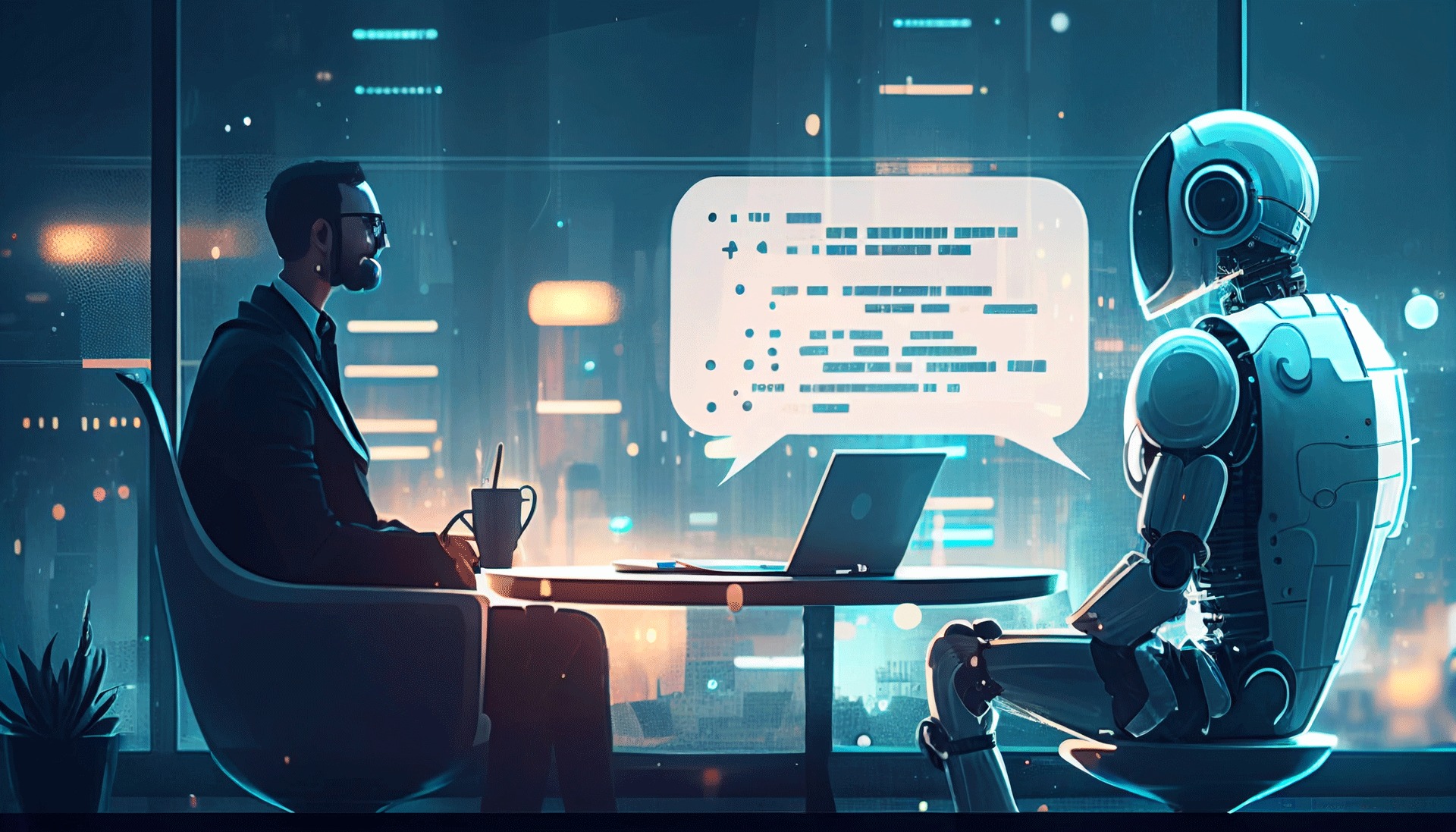How Is AI Shaping Personalized Employee Experiences In HR?
In today's dynamic workplace landscape, the question on everyone's mind is: how is AI shaping personalized employee experiences in HR? The integration of artificial intelligence into human resources functions marks a revolutionary shift in the way organizations manage and engage their workforce. From recruitment processes to talent management and beyond, the impact of AI on personalized employee experiences is profound.
Author:Suleman ShahReviewer:Han JuFeb 23, 20249.1K Shares143.2K Views
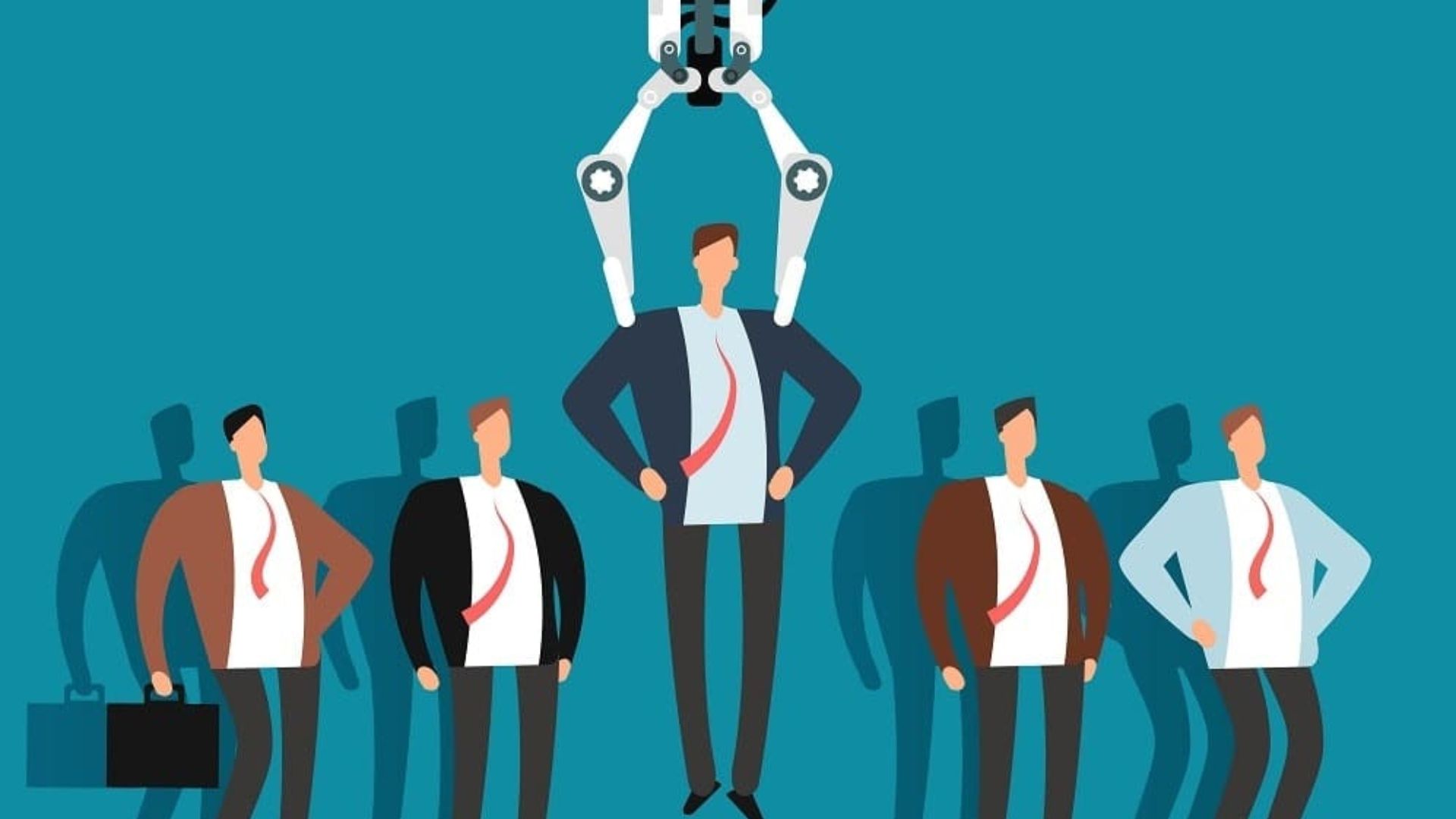
As the landscape of artificial intelligencecontinues to evolve, human resources is altering talent, which is redefining the way businesses manage people and design employee experiences. Artificial intelligence (AI) and human resources (HR) are becoming increasingly important in the pursuit of attaining the goals of attracting, retaining, and cultivating top talent in enterprises.
According to the talent study conducted byEightfold AI, the use of artificial intelligence software by human resources departments is exploding, with 92 percent of respondents intending to boost their utilization in the future. In this article, we will talk about how is AI shaping personalized employee experiences in HRin detail?
AI In Employee Training And Development
AI is being used in HR procedures to improve the development and training of employees. One illustration is the use of AI-driven learning systems, which have revolutionized the field of conventional training. These systems offer the capability to customize training materials according to the requirements, inclinations, and learning styles of specific employees.
Through a thorough analysis of a wide range of employee data, such as skill gaps and performance indicators, these systems can provide personalized recommendations for learning materials and professional development opportunities.
AI may also be utilized in training sessions to provide real-time coaching and feedback, removing the need for staff members to depend just on self-evaluation or wait for recurring assessments. AI enables workers to get prompt direction and assistance, enhancing their abilities and knowledge base.
Enhanced Onboarding Experience
For many businesses, the onboarding process consists of somewhat different versions of the same tasks, such as filling out paperwork, configuring apps and systems, and outlining procedures. After a day or two, these are over, and the new person is given time to acclimate to the organization.
Only 43% of workers questioned in O.C. Tanner'sGlobal Culture Report reported having an onboarding procedure that included more than a day of orientation and a benefits packet. That is incorrect. This hurried procedure ignores the unique qualities of each applicant and only ticks off a few boxes.
Ineffective onboarding is associated with increased employee turnover, which is just a waste of money spent on hiring. Recruits are appropriately eased into the firm in ways that meet their various personalities and demands by customizing the onboarding process. This strengthens the bond between workers and the business, improving retention.
By taking care of all the onboarding paperwork, AI solutions may facilitate this procedure. Additionally, they may use data on new hires to proactively offer resources, training courses, and help tailored to each individual's skill level.
Enhancing Candidate Experience
Hiring is one of the main areas where AI has a big influence. AI is used to propose qualified applicants for jobs. In a similar vein, job searchers are recommended suitable employment based on their skill sets. It does this by getting rid of human prejudice and boosting productivity in both directions.
The elimination of unconscious bias in talent acquisition has been made possible in large part by AI. In this manner, job searchers are not overlooked, and the procedure entails much more than just matching job description keywords. When hiring with AI technologies, all prospects are taken into account and the evaluation is mostly fair.
HR staff can dedicate time to offering a superior applicant experience that directly benefits the organization, while AI aids in the shortlisting process. Additionally, chatbots assist in giving all candidates the feedback they want positive or unfavorable. Since no applicant is left unanswered and all candidates receive feedback, this fosters a good perception of the organization.
Easier Upskilling Of Employees With AI
One of the less enjoyable HR tasks is determining the skills gap in a business. Determining whether the skills gap is real or the result of irrational expectations is what complicates the work. Artificial Intelligence software can distinguish between the skill sets of a current employee and those of a prospective recruit.
To determine the gaps between the intended and current skill sets, predictive analysis is used. Based on historical data, it can anticipate which new hires will mesh well with the existing workplace culture. It suggests workers with cultural backgrounds and skill sets who have already worked for the firm.
AI is also the best when it comes to instruction. AI can monitor the whole workforce and pinpoint any weak points. Following supervision might advise on the learning path and the necessary abilities to be acquired. The best thing is that AI can provide recommendations for staff training that doesn't require hiring more people.
Performance Management And Feedback Of Employees
AI gives performance management more accuracy and flexibility. AI-facilitated continual, data-driven evaluations are replacing the customary yearly reviews. These systems collect data in real-time on a range of employee performance metrics, including project results, meeting deadlines, and job quality.
Beyond measurements, sentiment analysis technologies that measure employee engagement and happiness are also included in the analysis. They then notify managers so they may step in as needed.
The use of 360-degree feedback loops, which gather opinions from peers and subordinates in addition to supervisors, is made possible by AI. This offers a thorough picture of a worker's accomplishments and potential growth areas.
Understanding Why Employee Experience Matters
When it comes to the success of a business, how important is the employee experience the most? Given the current state of affairs, is it possible to disregard the employee experience and yet anticipate success?
Without a doubt, not! Companies that utilize artificial intelligence to improve the employee experience are aware that the business environment is extremely competitive, and that to be successful, you need your people to perform at their highest level.
The following is a list of the most important circumstances that will make it a prudent choice for your firm to invest in the employee experience.
Recruiting
When an organization has a strong employer brand, it is much simpler to recruit qualified candidates. By giving the employee experience a high priority from the beginning of the onboarding process through the departure interview, you can build a powerful employer brand that will boost your ability to compete for new hires.
The Retention Of Employees
Having a high employee turnover rate is quite costly. When you lose brilliant individuals who are responsible for performing essential activities inside the business, you not only lose the investment you made to train and equip them with the appropriate abilities for the job, but you also lose the individuals themselves.
Setting a priority on providing a great employee experience is one of the elements that impact employee retention, and doing so raises the likelihood that your most valuable workers will continue to work for you.
Customer Satisfaction
One of the most common outcomes of happy staff is satisfied customers. Employees who are engaged will deliver the finest services to clients, which will result in a better experience for the consumer and increased loyalty.
Enhanced Levels Of Productivity
It is common for businesses that are dedicated to improving the working conditions of their employees to see a large increase in their overall productivity. This is because workers who are content in their jobs are more likely to go above and beyond their responsibilities, which ultimately leads to greater productivity, enhanced quality of work, and enhanced efficiency.
Ethical Considerations And Challenges For AI Utilization In HR
When utilizing AI apps, employee privacy, and data security are essential. To keep employees' confidence, organizations need to handle privacy and data security issues. Reducing biases and ensuring appropriate AI use are further crucial factors. HR professionals must take the required actions to guarantee fairness and openness in their AI-driven HR procedures, especially in light of impending regulations.
As HR professionals need to be upskilled to properly exploit AI capabilities and negotiate the ethical challenges that may arise, preparing the HR staff for AI adoption is also crucial. AI integration in HR requires striking a balance between automation and human interaction.
To make sure that employees' demands are satisfied, HR professionals must be aware of the limits of AI and continue to adopt a human-centric approach. Organizations may make use of AI-driven HR solutions while preserving trust and good employee relations by tackling these ethical issues and obstacles with AI systems.
Future AI Trends In HR For Employees
AI is already being applied in many creative contexts. Still, this is only the start. We can anticipate these technologies becoming much more integrated into HR initiatives than they now are because of their adaptability. The following are some AI-related HR trends to watch;
Predictive Analysis For Employee Retention
Hiring new employees comes with a cost. The Society for Human Resource Management estimates that hiring one employee comes with a price tag of around $4,700. In light of this, businesses are using AI-powered predictive analytics to estimate staff retention.
Artificial intelligence (AI) can detect trends and variables that influence employee attrition by examining past data. This method enables HR departments to practice focused retention initiatives, including customized development plans or attending to certain issues before they become more serious.
Career Path Prediction
AI is developing to forecast workers' career prospects according to their abilities, output, and the demands of the company. To offer appropriate positions, chances for skill development, and possible career promotion, machine learning algorithms evaluate data to discover probable career pathways. This promotes proactive career planning and gives employees insights into their professional development.
Workflow Automation
In HR procedures, automation is becoming more and more crucial. HR involves a lot of administrative work, but these AI solutions can manage it all. They take care of hectic work and monotonous chores so HR experts may concentrate on strategic objectives.
HR workflow automation powered by AI may manage documents, process paperwork, and schedule interviews, among other standard administrative duties. AI effectively turns HR directors and staff into digital assistants. This effectiveness improves total HR productivity by lowering mistakes and saving time.
Employee Experience Platforms (Exps)
AI is used by employee experience platforms to deliver a customized and all-encompassing work environment. These solutions customize employee experiences by analyzing data from several touchpoints, like as feedback, performance indicators, and communication channels.
Assembly is an intranet for the employee experience that includes employee surveys and easy connectivity with the technologies that businesses utilize. With only one inquiry, the AI assistant Dora AI can quickly get precise information and document summaries thanks to the input of all this data.
With this data, EXPs can create customized wellness plans and learning pathways that will increase employee happiness and engagement. This fosters a culture of positivity at work.
A Quick Summary
- Many HR leaders have explored or implemented AI solutions to improve process efficiency in organizations.
- AI can seemingly replace jobs quickly, but it also presents opportunities for transformation if we embrace change rather than fear it.
- Dave Ulrich sees AI as revolutionizing HR by efficiently managing and analyzing data while the human element remains pivotal.
- AI is defined as making computers capable of tasks typically requiring human intelligence, and it's rapidly advancing.
- One-third of organizations already use some form of AI applications for HR solutions according to a Deloitte study.
- AI is used to automate tasks, improve decision-making, and provide insights to help HR professionals better manage the workforce.
- AI can be used for predictive analytics to identify at-risk employees and potentially reduce turnover.
- Two-thirds of CEOs say AI will drive significant value in HR according to an IBM study.
- AI tools help HR teams identify best-fit candidates faster and more accurately, and 73% of HR professionals believe AI can improve talent acquisition.
- Integrating AI in HR is becoming necessary to help modern workplaces perform efficiently.
Frequently Asked Questions
How Does AI Differ From Traditional HR Approaches?
AI offers tailored solutions based on individual data, whereas traditional approaches often employ one-size-fits-all policies.
What Technologies Does AI Utilize To Shape Personalized Experiences?
AI leverages data analytics, machine learning, and natural language processing to analyze and personalize HR experiences.
What Components Of Personalized Experiences Does AI Address?
AI addresses customized learning, flexible work arrangements, personalized recognition, benefits, and career development.
Final Thoughts
With its many potential applications, artificial intelligence is a potent technologythat may greatly enhance corporate operations. Using AI to improve the employee experience is a game-changing strategy that can promote a more encouraging and effective work environment.
AI gives businesses a plethora of opportunities to leverage technology to increase employee happiness, from improved people management to simplified customer service. To make the most of this technology, evaluate the demands of your staff and identify the AI solution that will best help you resolve the issue at hand in a timely and effective manner.
Jump to
AI In Employee Training And Development
Enhanced Onboarding Experience
Enhancing Candidate Experience
Easier Upskilling Of Employees With AI
Performance Management And Feedback Of Employees
Understanding Why Employee Experience Matters
Ethical Considerations And Challenges For AI Utilization In HR
Future AI Trends In HR For Employees
A Quick Summary
Frequently Asked Questions
Final Thoughts

Suleman Shah
Author
Suleman Shah is a researcher and freelance writer. As a researcher, he has worked with MNS University of Agriculture, Multan (Pakistan) and Texas A & M University (USA). He regularly writes science articles and blogs for science news website immersse.com and open access publishers OA Publishing London and Scientific Times. He loves to keep himself updated on scientific developments and convert these developments into everyday language to update the readers about the developments in the scientific era. His primary research focus is Plant sciences, and he contributed to this field by publishing his research in scientific journals and presenting his work at many Conferences.
Shah graduated from the University of Agriculture Faisalabad (Pakistan) and started his professional carrier with Jaffer Agro Services and later with the Agriculture Department of the Government of Pakistan. His research interest compelled and attracted him to proceed with his carrier in Plant sciences research. So, he started his Ph.D. in Soil Science at MNS University of Agriculture Multan (Pakistan). Later, he started working as a visiting scholar with Texas A&M University (USA).
Shah’s experience with big Open Excess publishers like Springers, Frontiers, MDPI, etc., testified to his belief in Open Access as a barrier-removing mechanism between researchers and the readers of their research. Shah believes that Open Access is revolutionizing the publication process and benefitting research in all fields.

Han Ju
Reviewer
Hello! I'm Han Ju, the heart behind World Wide Journals. My life is a unique tapestry woven from the threads of news, spirituality, and science, enriched by melodies from my guitar. Raised amidst tales of the ancient and the arcane, I developed a keen eye for the stories that truly matter. Through my work, I seek to bridge the seen with the unseen, marrying the rigor of science with the depth of spirituality.
Each article at World Wide Journals is a piece of this ongoing quest, blending analysis with personal reflection. Whether exploring quantum frontiers or strumming chords under the stars, my aim is to inspire and provoke thought, inviting you into a world where every discovery is a note in the grand symphony of existence.
Welcome aboard this journey of insight and exploration, where curiosity leads and music guides.
Latest Articles
Popular Articles
